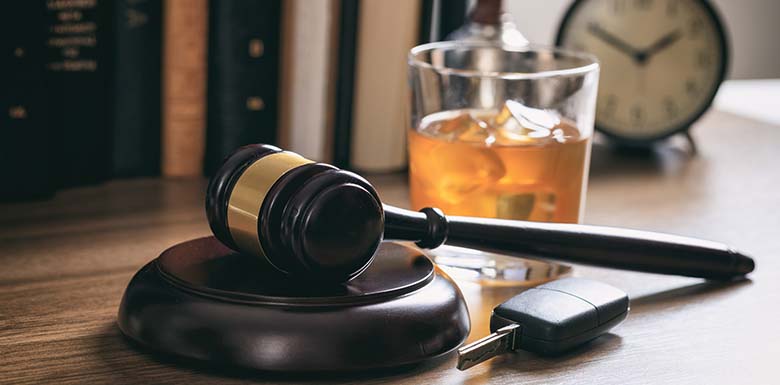Hardship License: How Do I Get My License Back?

One of the most important steps following a first-time DUI arrest is to get your hardship license so that you can drive to work, school, and medical appointments or religious services. After your arrest, your license is automatically suspended, potentially leaving you unable to drive for up to an entire year. This post will outline the steps you can follow to get your hardship license.
Contact the criminal defense lawyers of Metcalf Falls, Criminal Defense Attorneys today at 813-258-4800 for help with getting a hardship license or how your license is affected by a DUI arrest.
How Long Is Your License Suspended after a DUI?
Following a first-time DUI arrest, your license can be suspended either for six months or one year:
Six months – if you perform the breathalyzer and your result is .08 or higher, your license will be automatically suspended for six months.
One year – if you refuse the breathalyzer, your license will be automatically suspended for one year.
Note: these periods are for first-time DUI arrests only. If you have previously refused a breathalyzer, a second refusal can be a criminal offense by itself.
10-Day Hardship License
Your DUI citation (given to you by the officer) is also a ten-day hardship license. This means you can drive for ten days starting from the date of your arrest if you keep that citation with you. This gives you ten days to obtain your hardship license.
Important: If you do not get your hardship license during the ten days, you must serve 30 or 90 days of the license suspension (30 if you did the breathalyzer, 90 if you refused) before you are eligible for the hardship license.
So don’t wait until eleven days after your arrest – make getting your hardship license a top priority.
Who Is Eligible for a Hardship License?
Not everyone can seek a hardship license after a DUI. You can be denied if you:
- Were involved in DUI causing serious bodily injury
- Have convicted of two or more DUIs
- Have refused a breathalyzer two or more times
- Have been charged or convicted of vehicular manslaughter
How to Get a Hardship License in Florida
Be aware that to get your hardship license, you must waive your right to challenge your license suspension formally. This means that you are forfeiting your right to have an administrative hearing and challenge the suspension of your license.
This does not mean that you are admitting to the crime of DUI — just that you are choosing not to fight the license suspension. However, if you waive the hearing, your driving history can show your DUI suspension and can impact you for insurance purposes.
Register for a DUI Class
One of the conditions of getting your hardship license is registering for an approved DUI class. Be sure to print out proof of your registration for the class and take it with you when you go to get your hardship license. Level I DUI school costs $350.
If you fail to complete the DUI school within 90 days after you get your hardship license, your license will be suspended until you complete the course.
Apply for a Hardship License Hearing
Next, you’ll apply for a hardship license with the Department of Highway Safety and Motor Vehicles. Along with your application, you’ll submit the following:
- A $12 check or money order to cover the filing fee
- Any evidence or documentation that can support your case
- Proof of DUI class enrollment or completion
After submitting your application, you’ll wait for it to be processed, which can take two to four weeks.
Pick Up Your Hardship License and Pay Required Fees
If your application is approved, you can take your approval letter to your nearest DMV location to receive your hardship license. You’ll also have to pay fees such as an administrative fee of $130, a DUI program fee of $15, and a suspension fee of $45. The local DMV office may also assess other administrative fees.
Conditions of a Hardship License
Receiving a hardship license doesn’t mean you can drive anywhere, any time you want. Under Florida law, your hardship license limits you to “any driving necessary to maintain livelihood,” including:
- to and from work
- for any necessary on-the-job duties
- for educational purposes
- for getting food, groceries, and necessary household items
- for church purposes, and
- for medical purposes
The phrase “necessary to maintain livelihood” is very broad under the law. If you are pulled over the police officer will be the one deciding if you are driving in violation of your hardship license. In other words, don’t get pulled over going to the beach on Saturday afternoon.
What Happens if You Violate the Conditions of a Hardship License?
Abusing the privilege of your hardship license can lead to serious consequences. Under Florida Statutes Section 322.16(1)(c), you could face a misdemeanor charge, which could carry up to 60 days in jail and a $500 fine. You’ll also have your hardship license automatically revoked for the remainder of the original suspension term.
Need a Hardship License? Metcalf Falls Can Help
The time after any first-time DUI arrest can be confusing, but getting a hardship license can make it easier to carry on with some of your daily activities.
If you have any questions about your options in getting a hardship license or need representation at an administrative hearing, contact Metcalf Falls today or call 813-258-4800 to schedule an initial consultation.
